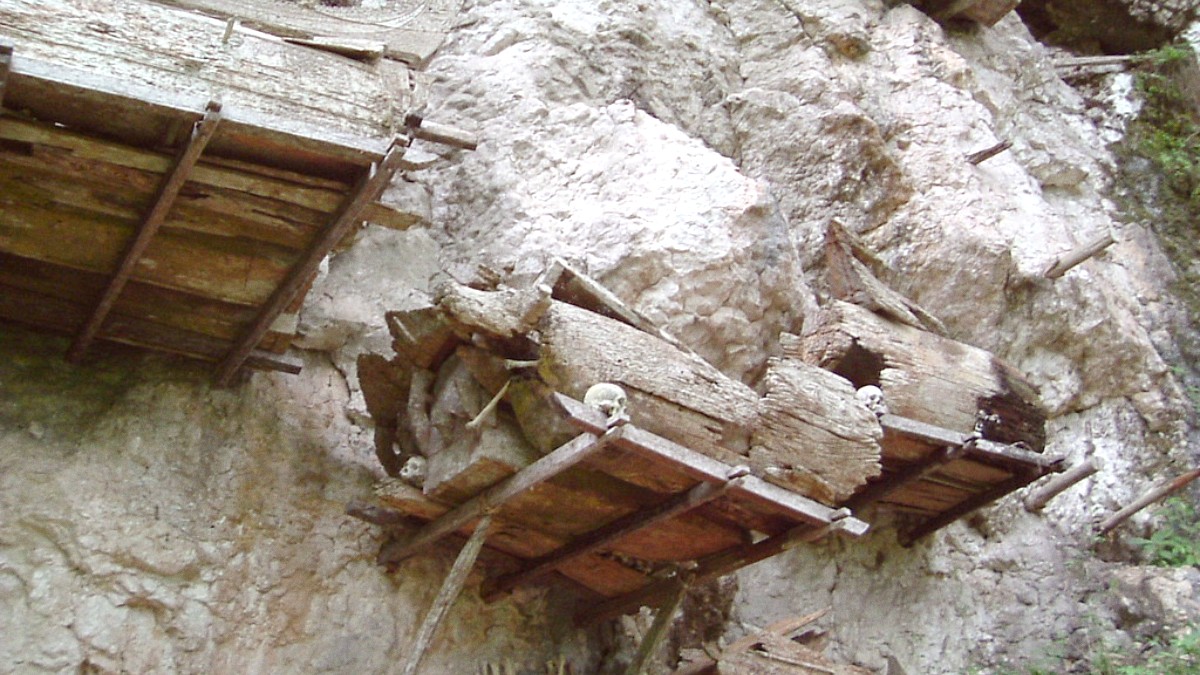
Sulawesi, Indonesia
Tana Toraja, a distinct destination in the Sulawesi highlands of Indonesia, showcases an unique culture. Travelers discover timeless rituals and admire remarkable artistry. This journey connects you with the essence of Indonesia's cultural heritage.
Tana Toraja, meaning "Land of the Toraja" or "Land of the Heavenly Kings," occupies a regency in the highlands of South Sulawesi, Indonesia. Makassar, the provincial capital, sits approximately 300 kilometers south. Elevations across the region span from 700 to 1,200 meters above sea level.
Rantepao, the commercial and tourist hub, and Makale, the administrative seat, serve as the two main towns. Winding roads connect these towns and smaller villages, showing scenic terrain. Rivers and streams flow through valleys, nurturing the terraced rice fields that define the agricultural views. The higher elevation brings a cooler climate, a pleasant contrast to Sulawesi's coastal areas.
Tongkonan houses, with their striking saddle-back roofs resembling boats or buffalo horns, display intricate carvings. The Torajan animistic belief system, Aluk Todolo, meaning "Way of the Ancestors," existed before the arrival of Christianity and Islam. This belief system deeply shapes their social fabric, artistic expressions, and daily routines, creating a profound spiritual and communal society.
Aluk Todolo guides many aspects of Torajan life, from farming methods to home construction and, especially, ceremonies surrounding death. For centuries, the Torajan people lived in seclusion, allowing their unique customs to thrive without much outside influence. Tana Toraja gained international notice in the 1970s. This attention drew anthropologists and travelers interested in its unique cultural legacy, especially the intricate burial rites and unusual cliff graves.
A strong emphasis on family lineage and collective well-being.
Agricultural cycles and social events follow specific ancestral timings.
Intricate carvings and traditional motifs symbolize beliefs and status.
Ceremonies feature animal sacrifices as tributes to ancestors and deities.
Death rites guide the deceased's path to the realm of spirits.
The historical way of carving graves into rock faces, placing coffins in caves, and suspending them from cliffs speaks to a long-held respect for ancestors and a complex view of the afterlife.
This increased interest brought both opportunities and dilemmas, as the Torajan people work to balance cultural continuity with the influences of modern visitors.
A profound reverence for ancestors and a complex spiritual view of the afterlife shape their burial practices.
The intricate burial ceremonies and unique cliff graves fascinate anthropologists and visitors alike.
Tana Toraja is mainly known for its unique cultural traditions around death. The elaborate funeral ceremonies, called Rambu Solo', form the cornerstone of Torajan social and spiritual life. These multi-day events celebrate a person's life and mark a necessary passage for their journey to the afterlife. They include animal sacrifices, traditional dances, and communal gatherings.
Beyond these ceremonies, the region is famed for its traditional architecture, especially the Tongkonan houses. These ancestral homes serve as more than just dwellings; they represent family lineage and status, adorned with geometric and animal motifs narrating family history.
Rambu Solo' ceremonies celebrate life and aid the passage to the afterlife.
Ancestral homes represent lineage and status with intricate designs.
Cliff graves, hanging coffins, and unique tree burials for infants.
The economy relies heavily on agriculture, with rice and coffee as major crops. Fertile valleys and terraced hillsides yield high-quality Toraja coffee, recognized globally.
The blend of deeply rooted traditions, striking architecture, and beautiful scenery crafts a captivating experience for travelers.